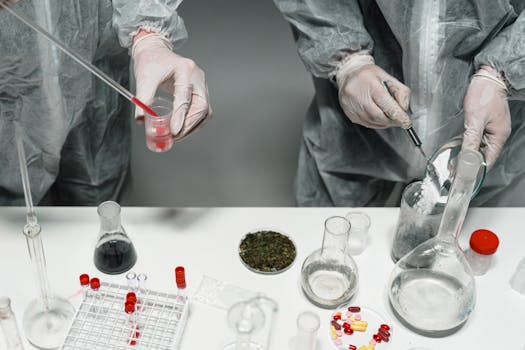Breaking New Ground: Innovative Therapies in Drug and Alcohol Addiction Treatment
In the ever-evolving world of health and medicine, treating drug and alcohol addiction has seen significant advancements that cater to the diverse needs of those seeking recovery. Innovative therapies in addiction treatment have shifted the focus from a one-size-fits-all approach to a more personalized and patient-centered strategy, utilizing a combination of behavioral and holistic techniques.
The Rise of Tailored Rehabilitation Techniques
For decades, addiction treatment predominantly relied on traditional methods like abstinence programs and generalized therapies. However, the understanding of addiction’s complex nature has led to the exploration and integration of more varied rehabilitation techniques. These innovative therapies are designed to address the underlying emotional, cognitive, and social factors influencing substance abuse.
Behavioral and Cognitive Therapies: The Foundation of Change
Behavioral therapy aims to modify harmful behaviors associated with addiction through structured interventions. Techniques like Cognitive Behavioral Therapy (CBT) have proven effective across various substance use disorders. CBT helps individuals identify and change distorted thought patterns, thereby influencing their feelings and behaviors.
Similarly, Contingency Management uses positive reinforcements to encourage abstinence and enhanced participation in treatment. Studies indicate that such approaches help sustain recovery by building motivation and fostering resilience.
Breaking Ground with Mindfulness and Meditation
Alongside traditional behavioral therapies, mindfulness-based interventions have garnered attention for their efficacy in addiction recovery. Mindfulness practices encourage individuals to stay present and cultivate non-judgmental awareness, addressing emotional dysregulation—a common struggle among those facing addiction.
Mindfulness techniques, including meditation and yoga, instill a profound sense of self-awareness that aids in breaking the cycle of automatic cravings and stress-related triggers. By learning to ground themselves in the moment, patients often find better control over their impulses and emotions.
Holistic Healing: Nurturing Body, Mind, and Spirit
The holistic approach in addiction treatment focuses on treating the person, not just their addiction. This philosophy emphasizes balancing physical, psychological, and emotional wellbeing. Therapies might include acupuncture, art therapy, nutritional counseling, and physical fitness programs to support the healing journey.
One standout is Equine-Assisted Therapy, which involves interacting with horses as a form of experiential therapy. This process encourages patients to develop critical life skills, such as responsibility, communication, and self-control, in a meditative and collaborative environment.
Navigating the Future with Medical Advancements
In recent years, the introduction of medication-assisted treatment (MAT) has revolutionized the management of opiate and alcohol dependence. Drugs like buprenorphine, naloxone, and methadone target the brain’s chemistry to mitigate withdrawal symptoms and decrease cravings.
Combined with comprehensive therapy sessions, MAT provides a balanced approach, supporting patients in achieving sustainable recovery with reduced risk of relapse.
Integrated Therapy Programs: Combining the Best Practices
As researchers continue to uncover the intricacies of addiction, combining multiple therapy modalities has become a promising trend in treatment facilities. Integrating outpatient and inpatient programs with an array of behavioral, cognitive, mindfulness, and medicinal therapies ensures more holistic and sustainable recovery paths.
Empowering Recovery with Technology
Technology has emerged as a crucial ally in addiction treatment. Apps and virtual therapy platforms enable patients to access support networks, track their progress, and engage in self-help practices. Telehealth services have expanded access to care, particularly beneficial during the challenges posed by the COVID-19 pandemic.
These digital tools empower recovery by facilitating continuity of care and allowing individuals to connect with therapists, peers, and recovery communities irrespective of their geographic location.
Charting a New Course toward Healing
The reality of drug and alcohol addiction often brings despair and devastation. However, the advent of innovative therapies and rehabilitation techniques injects hope and possibilities for recovery. By prioritizing personalized treatment plans and embracing the holistic model, healthcare providers can offer well-rounded solutions, ensuring patients can reclaim their lives, free from addiction’s hold.
While the journey to sobriety is undoubtedly challenging, these novel approaches suggest a brighter future for those dedicated to the path of recovery and renewal. As such, embracing innovation remains crucial in crafting effective addiction treatments that address the uniqueness of each journey toward a healthier life.

